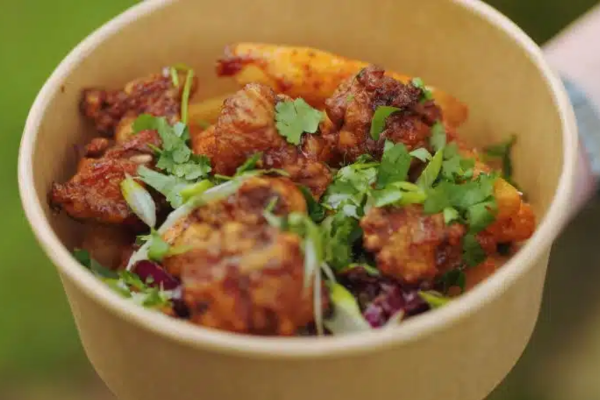
Cook up a storm for Great British Game Week
Fancy a venison steak sandwich for lunch, or sticky pheasant bites for dinner? Check out our new recipes from Eat Game.
Get information on the legal shooting season for mammals and birds in the UK.
Apply for funding for your project or make a donation today
Comprehensive information and advice from our specialist firearms team.
Everything you need to know about shotgun, rifle and airgun ammunition.
Find our up-to-date information, advice and links to government resources.
Everything you need to know on firearms law and licensing.
All the latest news and advice on general licences and how they affect you.
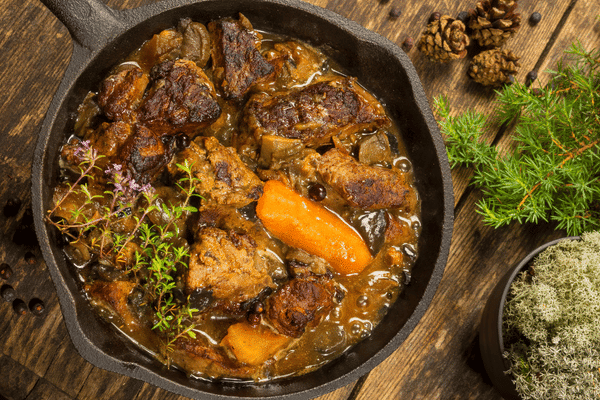
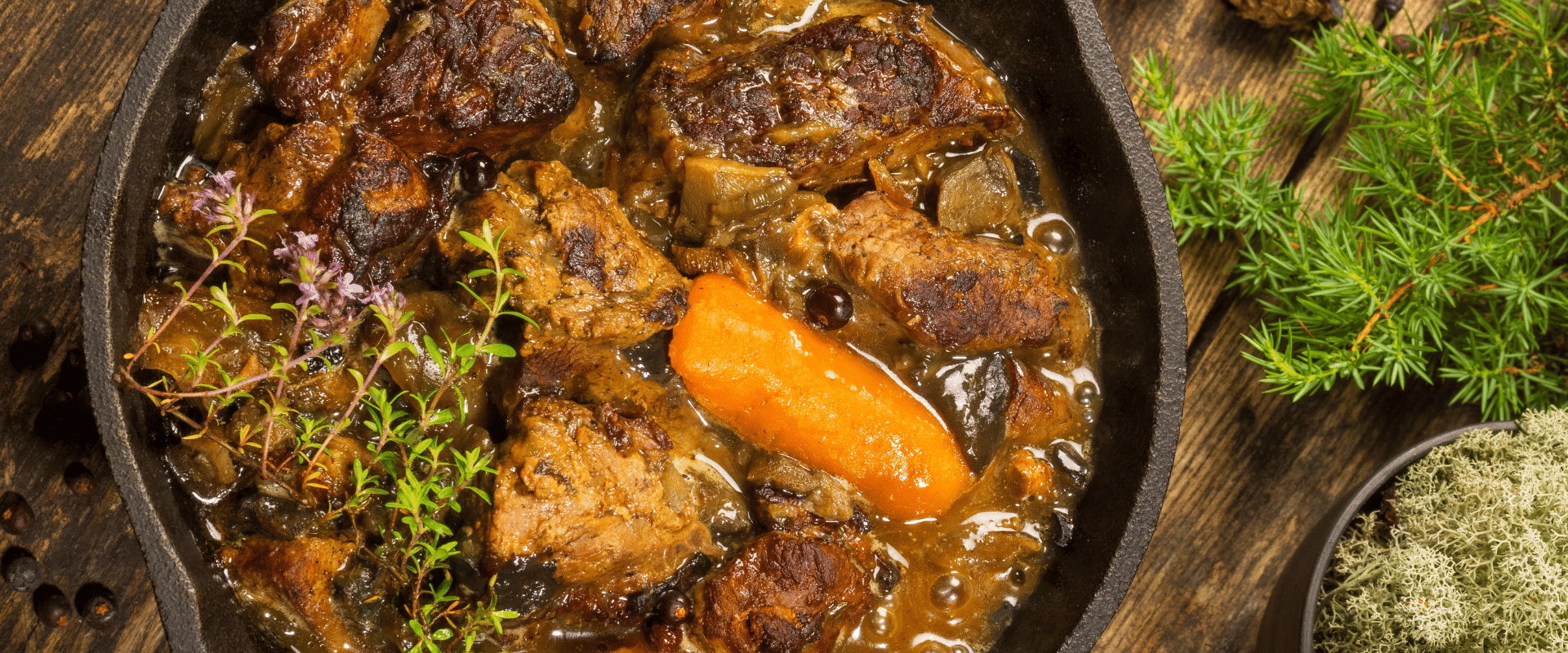
Will recent government strategies on food and deer management spark a boom in game meat consumption? Dr Conor O’Gorman reviews the proposals. This article first appeared in the September/October issue of Shooting and Conservation magazine.
Government strategies rarely touch on shooting but during the summer two long-awaited documents were published with direct relevance to the game meat sector and for venison in particular.
Let’s look first at the Government Food Strategy for England.
In 2019, when he was environment secretary, Michael Gove launched a ‘field to fork’ review. The purpose of the review was to look at the entire food system and consider what changes were needed. Against the backdrop of a tumultuous political period, progress was slow, and it was only in June of this year that the resulting food strategy was published
In a bizarre turn of events, our hopes for game meat to be integral to the strategy were raised high and then dashed. This was because a few days before the strategy was due to be officially published, the media began reporting on a leaked version that allegedly contained recommendations on venison.
The Guardian led the charge with the headline “Worse than half-baked”, featuring a photograph of a red deer, accompanied by the caption “the white paper proposes an increase in the use of responsibly sourced wild venison”. Other newspapers followed suit. The food strategy was about ‘venison burgers’ and the government wanted to encourage people to ‘eat venison instead of beef’. This was ‘preposterous’, various journalists shrilled.
Then, after a weekend of media discontent, the food strategy was published and there was no mention of venison. Were the references pulled because of negative media feedback on the leaked version? We have asked and got a ‘no comment’ response.
The published strategy is very short on detail, but it does back British farming and contains several commitments that provide opportunities for shooting, including a framework for land use in England to be published next year.
However, with the ink hardly dry on the food strategy, ten days later The Sun ran a story on ‘secret’ plans for a mass cull of deer, with farmers getting grants for shooting deer, and supermarkets being encouraged to sell more wild venison. Then all went quiet until August when Defra launched a one-month public consultation on its long-awaited England Deer Management Strategy.
The strategy contains a wide range of well-meant but ill-advised proposals for deer management. BASC is opposed to most of the proposals, such as removing the close season for male deer, allowing unlicensed night shooting and introducing mandatory minimum standards for all persons culling deer.
However, there are some proposals that make positive noises about supporting the venison food supply chain, so let’s look at these in detail.
The strategy states that “the sustainable management of the deer population can also support the development of the wild venison market as a carbon-positive, healthy meat and a product of sustainable woodland management.” It goes on to say that “venison sales are a key part of the deer management cycle and the revenue can help landowners offset deer management costs”. This is followed by a proposal for government to “support the development of a financially and environmentally sustainable wild venison supply chain” through “small grants to contribute to the costs of purchasing and installing the necessary facilities and equipment, where capital costs are a barrier”.
BASC supports this proposal, and we would like to see capital payments not only for high seats, but also grants for chillers, extraction equipment and thermal imagers/rifle scopes.
We also agree with a promise to continue facilitating the Great Britain Venison Working Group. We are already part of the working group, which is developing a quality assurance scheme that will help promote wild venison to the larger retailers.
That said, we are concerned that more emphasis has not been placed on the support of the wild venison market in the strategy.
The easiest way to encourage people to cull more deer is to increase the value of carcasses. If government money was allocated to subsidising the venison market, then we could see a net positive effect on the whole venison supply chain. This could be further backed by high-level support across government for venison as a healthy, ethically produced source of protein which should be available through the government’s own institutions, including the Ministry of Defence, the Department for Education and Department of Health and Social Care.
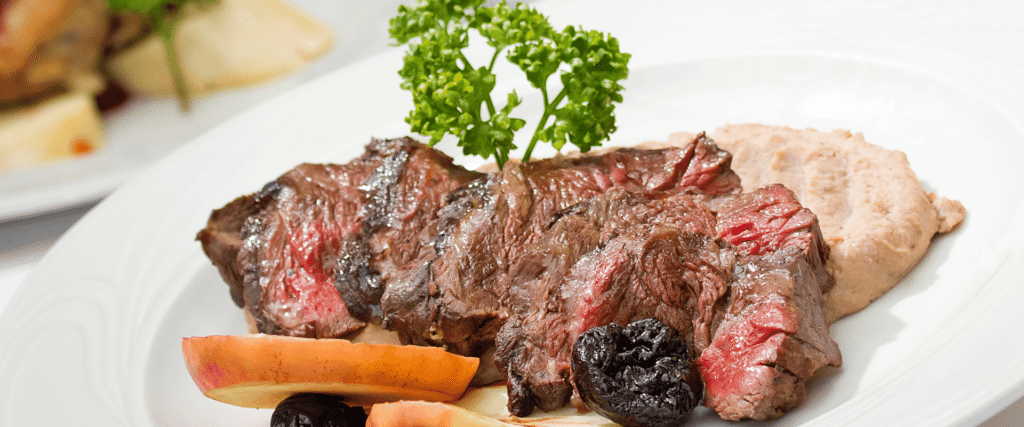
BASC supports the proposed introduction of incentives for reducing deer impacts to protect woodland, but these need to be aimed at specific species/sex of deer and ideally paid direct to the deer manager, not the landowner. We think some form of premium paid via Approved Game Handling Establishments (AGHEs) could work and we want Defra and the Forestry Commission to explore this option more thoroughly with interested parties.
BASC represents over 75 per cent of all deer managers in England and the median number of deer culled by our deer stalking members is 15 animals per year, so we estimate that our members alone account for an annual cull of 540,000 deer.
We want to see a system of incentives paid direct to the deer manager through subsidised carcass values. As most deer managers operate on a voluntary basis, they are not entirely motivated by financial reward, yet undertaking deer management is expensive in terms of the capital outlay required for equipment – rifle, telescopic sights, binoculars, thermal imagers, chiller units, 4×4 vehicle for extraction, etc. We think that changes to grant schemes to provide these capital items would help remove some of the financial barriers, especially to younger deer managers.
Deer management is also expensive in terms of on-going costs such as fuel, leases, and unsocial hours. Most voluntary deer managers rely on the revenue they generate from carcass sales to help offset these costs and make their activity less expensive.
The associated costs can limit the number of outings that a deer manager undertakes; an increase in financial rewards could see an increase in effort and also more deer culled, especially if there was a ready market for the carcasses.
So, what does this all mean and what happens next?
Martin Edwards, BASC’s head of deer management, said: “There is much in the England Deer Management Strategy about how we need to increase the national cull of deer and how this could be achieved, but little thought has been given to what we will do with all these extra carcasses if it is successful!
“It would have been nice if there had been some joined-up thinking to link the food strategy and the deer strategy such that the market for venison was improved – this on its own would see an increase in cull effort by most deer stalkers.”
Looking ahead, BASC will continue to work with Defra to ensure that the value of sustainable shooting and game meat is recognised in future policies and projects. We harvest wild game such as deer and gamebirds and we control pest birds and mammals to ensure food security. We have much to be proud of and shout about.
Through our Eat Game campaign we will continue to highlight the benefits of game meat as a healthy option for meat-eaters that is high in protein and nutrients but low in fat and cholesterol.
The media is a fickle beast and we will continue to feed it with positive stories around sustainable shooting.
I mentioned The Guardian’s tabloid response to the food strategy. Yet, only a year ago, the same paper featured an article with the headline “Eat this to save the world! The most sustainable foods – from seaweed to venison”. The author went on to explain that “venison is a great example of nutrient-rich meat produced from the grass and foraged plants and trees that humans cannot utilise. It is also in abundant supply as, with predators no longer at large in the UK, deer populations are routinely culled so that they don’t outstrip the supply of wild vegetation and encroach on farmland.”
I couldn’t agree more.


Fancy a venison steak sandwich for lunch, or sticky pheasant bites for dinner? Check out our new recipes from Eat Game.
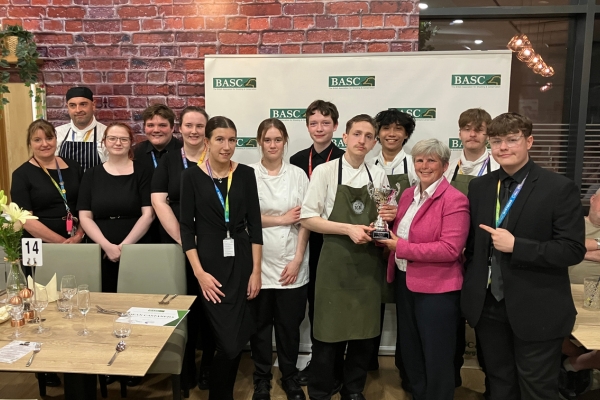
A group of Welsh college students claimed victory in the second round of a unique game-based culinary and hospitality competition spanning the Irish Sea.
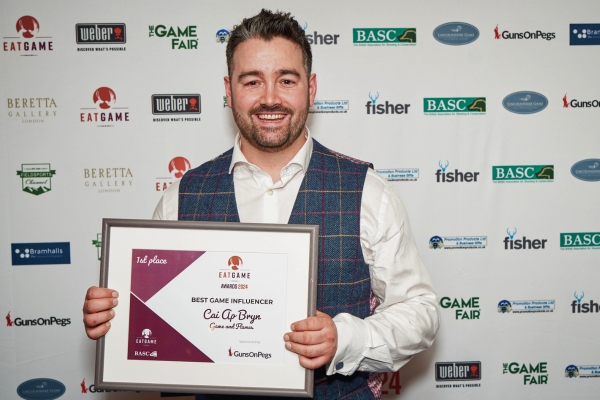
Nominations are open for the 2025 Eat Game Awards, and we want to hear from you to reward the success, innovation, and passion of game meat heroes.
Sign up to our weekly newsletter and get all the latest updates straight to your inbox.
© 2025 British Association for Shooting and Conservation. Registered Office: Marford Mill, Rossett, Wrexham, LL12 0HL – Registered Society No: 28488R. BASC is a trading name of the British Association for Shooting and Conservation Limited which is authorised and regulated by the Financial Conduct Authority (FCA) under firm reference number 311937.
BASC Direct Ltd is an Introducer Appointed Representative of Agria Pet Insurance Ltd who administer the insurance and is authorised and regulated by the Financial Conduct Authority, Financial Services Register Number 496160. Agria Pet Insurance is registered and incorporated in England and Wales with registered number 04258783. Registered office: First Floor, Blue Leanie, Walton Street, Aylesbury, Buckinghamshire, HP21 7QW. Agria insurance policies are underwritten by Agria Försäkring.
If you have any questions or complaints about your BASC membership insurance cover, please email us. More information about resolving complaints can be found on the FCA website or on the EU ODR platform.